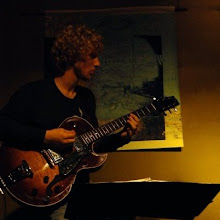

Ron Carter was the subject of a recent interview at Barnes and Noble on 86th Street, hosted by Dr. David Schroeder, Director of the NYU Steinhardt Jazz Studies Program. Although he has been heard in numerous settings, Carter is most notable as the bassist in Miles Davis’ famous “second great quintet” of the mid 1960's. With that group, he was at the forefront of a movement in jazz, altering the course of music history, and eventually leading to the advent of electric instruments in jazz. The innovations and music of that group continues to be studied and analyzed by jazz musicians throughout the world.
Following his stint in the Davis group, Carter went on to an illustrious recording career as both a leader and sideman to numerous artists including Freddie Hubbard, McCoy Tyner, Jim Hall, Milt Jackson, Joe Henderson, and George Benson. He can be heard on more than 2500 recordings, making him one of the most prolific musicians ever recorded. Recently, Carter has released an album dedicated to Miles Davis, called Dear Miles, and is the subject of a new biography entitled Finding The Right Notes, both of which he promoted at the jazz interview series.
Before a question could be asked though, Carter serenaded the crowd with a couple of duets he played along with guitarist Russell Malone. While the tunes were simple in form–the first loosely based on rhythm changes and the second on the blues–the chemistry displayed by the two musicians was something to behold. The two have played together semi-regularly over the course of the past decade in the Ron Carter Trio along with pianist Mulgrew Miller. That group will play a week long run at The Blue Note in New York beginning October 27.
Carter and Malone had an obvious appreciation of one another. Malone’s guitar was barely amplified. He relied on an acoustic sound so as not to “overshadow Ron.” As a guitarist, Malone had plenty of opportunities to play overtop of Carter’s accompaniment, but he continually relinquished the spotlight to Carter, playing on an even plane with him as the two interwove their lines together. Speaking directly after the performance, Carter mentioned that he “trusts Russell.” The trust was mutual, as the two had a unique chemistry. With both instruments amplified minimally, the audience was treated to a special performance where both musicians could be heard communicating in their most stripped down form.
During the interview, Carter expanded on his astounding resume. Originally a classical musician, Carter attended Eastman School of Music as a cellist in the 1950's, where he learned “the value of discipline, how to practice, and a solid understanding of the rules of music.” Carter found this training an important foundation for his career, as, he said, “it's hard to break the rules when you don't know what they are.”
Carter moved to New York City in August of 1959, where he soon switched to the bass out of necessity. Joining an active jazz scene, Carter spoke of his fellow young musicians at the time, saying, "we were all looking to play, all the time. It didn't matter when, where or with whom..." He insisted that the experience was invaluable, and urged young musicians today to "find your own places to play, because you need to find out what you don't know."
After joining Miles Davis' group, Carter was thrust to the top of the jazz world, but he noted that his relationship with Davis began on surprisingly even terms. Carter was playing a two week gig with Art Farmer at the time. Davis was insistent that Carter join him on tour immediately, to which Carter replied, "Mr. Davis, you'll have to talk to Art. If he says it's okay, I'd be happy to come with you, but if he says ‘no,’ I'd be just as happy to stay here." That honesty and respect between the two men would shape their relationship for all the years that followed.
Carter gave the crowd a few other tidbits about his time with Davis, but more often than not, he pointed to the new biography as a way to find out those stories.
As the consummate sideman, Carter had plenty of advice about working with other musicians. Responding to an audience member’s question about his association with drummer Lewis Nash, Carter noted, “I always insist that the drums be tuned properly so that they are tuned to my bass. That way the drummer can hear all of the frequencies and can really hear the pulse.” According to Carter, it was an aspect that Nash had rarely thought of before, but the two were really able to open up and compliment each other when their instruments were tuned to complimentary frequencies.
Responding to another audience question, Carter brought the discussion back around to his performance with Russell Malone. Speaking about the relationship the two have on the bandstand, Carter said, “I try to hear everything, and I try to anticipate where Russell is going. I trust his judgment and that he will take me someplace that I wouldn't have thought of, but I also want to make him play something that he wouldn't otherwise play at his house, so I need to start listening to where he's going even before he starts playing.”
Carter pointed out that each person he encounters “plays differently, and what I want to do is find the notes that fit with each player, to make that player sound better than he really is!”
Although Carter seems to have accomplished more than any musician could dream of, he continues to go out on the bandstand each night “trying to find the right notes.”


No comments:
Post a Comment